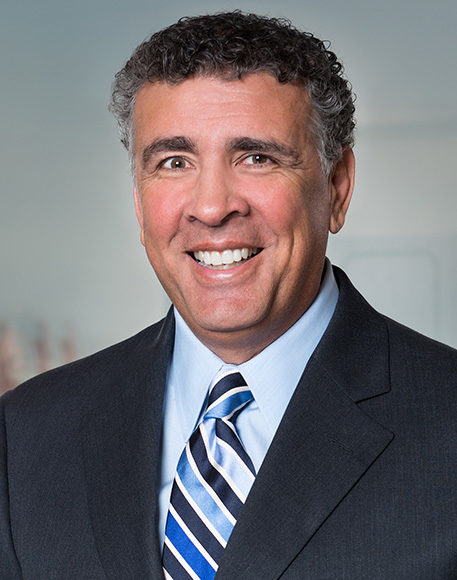How Can I Help Prevent Nursing Home Abuse?
 Sadly, nursing home abuse is a serious issue that affects countless elderly residents across the country. Fortunately, family members, guardians, and friends of nursing home residents can play a crucial role in safeguarding the well-being of their loved ones. Preventing nursing home abuse requires vigilance, education, and proactive measures to identify, address, and mitigate potential risks. This guide covers the steps you can take to help prevent nursing home abuse, how to hold facilities accountable, and what legal actions are available if you suspect mistreatment.
Sadly, nursing home abuse is a serious issue that affects countless elderly residents across the country. Fortunately, family members, guardians, and friends of nursing home residents can play a crucial role in safeguarding the well-being of their loved ones. Preventing nursing home abuse requires vigilance, education, and proactive measures to identify, address, and mitigate potential risks. This guide covers the steps you can take to help prevent nursing home abuse, how to hold facilities accountable, and what legal actions are available if you suspect mistreatment.
Educate Yourself on Nursing Home Abuse
Educating yourself is the first step in preventing nursing home abuse. You can start by learning the different forms of abuse that may happen in these facilities. Nursing home abuse can take many forms, including physical abuse, emotional abuse, sexual abuse, financial exploitation, and neglect. Understanding the signs of each type of abuse can help you identify potential problems before they escalate.
- Physical abuse: This includes any form of physical harm, such as hitting, slapping, or inappropriate restraint. Look for unexplained bruises, cuts, or other injuries.
- Emotional abuse: This involves verbal assaults, threats, or intimidation. A sudden change in a resident’s mood—such as becoming withdrawn, anxious, or depressed—could indicate emotional abuse.
- Sexual abuse: Any non-consensual sexual contact or behavior falls into this category. Be vigilant for signs of trauma, fear, or unusual behavior.
- Financial exploitation: This occurs when someone unlawfully or improperly uses a resident’s money or assets. Watch for sudden changes in financial status, missing possessions, or unexplained withdrawals.
- Neglect: This is the failure to provide necessary care, leading to harm or discomfort. Signs include malnutrition, dehydration, poor hygiene, and untreated medical issues.
By understanding these forms of abuse, you can better recognize when something is amiss and take action to protect your loved one.
Regularly visit and communicate with your loved one
Frequent visits are one of the most effective ways to prevent nursing home abuse. Regular communication and visits show the nursing home staff that your loved one has a support system that is actively involved in their care. During visits, pay close attention to the resident’s physical condition, emotional state, and environment.
- Engage in conversations: Speak openly with your loved one about their experiences. Ask questions about their daily routine, how they feel about the staff, and if they feel safe.
- Observe interactions: Take note of how staff members interact with your loved one and other residents. Are they attentive, respectful, and kind? A staff member who is rushed or appears frustrated may not be providing adequate care.
- Look for warning signs: Be alert for any physical, emotional, or behavioral changes. Unexplained injuries, sudden weight loss, or fear of certain staff members may suggest abuse or neglect.
Regular visits also allow you to build relationships with the staff and other residents, making it easier to identify and address potential issues before they become serious problems.
Review the nursing home’s policies and procedures
Before choosing a nursing home, review its policies and procedures regarding resident care, abuse prevention, and reporting. A reputable nursing home should have clear guidelines in place to prevent abuse and respond to any allegations promptly.
- Staff training: Ensure that the nursing home provides regular training for its staff on how to recognize, prevent, and report abuse. Staff should be educated on the proper ways to handle residents, manage challenging behaviors, and maintain a safe and respectful environment.
- Reporting procedures: The nursing home should have a clear process for reporting abuse or neglect. This process should include a confidential way for residents, staff, and visitors to report concerns and ensure that all reports are thoroughly investigated.
- Background checks: Verify that the nursing home conducts comprehensive background checks on all employees. This can help prevent individuals with a history of abuse or neglect from being hired.
If you identify any gaps in policies or practices, bring them up with the administration. They should be willing to discuss and improve any shortcomings.
Advocate for your loved one
Being an advocate for your loved one means actively participating in their care and ensuring their rights are respected. You can do this by attending care plan meetings, staying informed about their medical condition, and being involved in decisions about their care.
- Participate in care plan meetings: These meetings are an opportunity to discuss your loved one’s care, any changes in their condition, and how the nursing home is addressing their needs. Your involvement shows that you are invested in their well-being.
- Stay informed: Keep up to date with your loved one’s medical condition and treatment. Ask questions and seek clarification if you don’t understand something. This helps ensure that they receive the best possible care.
- Document concerns: If you notice any issues, document them. Keep records of conversations with staff, take photos of injuries, and write down details like dates and times.
How can I hold a nursing home accountable for abuse?
Holding a nursing home accountable for abuse is vital for protecting your loved one and preventing further harm to other residents. If you suspect abuse, take immediate action by following these steps.
Report the abuse to the nursing home administration
One of the first things to do in order to hold a nursing home accountable is to report the abuse to the facility’s administration. Provide detailed information about what you have observed, including dates, times, and any specific incidents. The administration should investigate the allegations promptly and take appropriate action to address the situation.
Contact state and local authorities
If the nursing home administration does not take your concerns seriously or if the abuse continues, contact state and local authorities. Each state has an agency responsible for overseeing nursing homes and investigating complaints. This could be the state’s Department of Health or a similar regulatory body. You can also contact your local Adult Protective Services (APS) office, which is responsible for protecting vulnerable adults from abuse, neglect, and exploitation.
Involve law enforcement
In cases of severe abuse, such as physical or sexual assault, involve law enforcement immediately. Nursing home abuse is a crime, and the abuser should be held accountable through the criminal justice system. Filing a police report can also help build a case if you decide to pursue legal action against the nursing home.
Document everything
Keep meticulous records, including photos, medical records, and notes from your interactions with staff. This evidence will be vital if you decide to take legal action.
Consult with an attorney
If the nursing home fails to address the abuse or if you want to pursue legal action, consult with an attorney who understands nursing home abuse cases. The experienced nursing home abuse attorneys at Garcia & Coman can help you handle the legal process, gather evidence, and hold the nursing home accountable for its actions.
Can I sue a nursing home for neglect?
Yes, you can sue a nursing home for neglect. Neglect occurs when the facility fails to provide the necessary care, leading to harm or suffering for the resident. Neglect can be as harmful as abuse and may include failure to provide adequate food, water, medical care, or supervision.
Grounds for filing a lawsuit
To sue a nursing home for neglect, you must demonstrate that the facility failed to meet its duty of care to the resident. Some of the common grounds for filing a lawsuit include:
- Failure to provide basic needs: This includes food, water, clothing, and shelter. If the nursing home fails to provide these basic necessities, leading to malnutrition, dehydration, or other harm, you may have grounds for a lawsuit.
- Failure to provide adequate medical care: Nursing homes are responsible for providing necessary medical care, including medication management, wound care, and treatment for chronic conditions. Neglecting these responsibilities can result in serious health complications.
- Failure to supervise: If the nursing home fails to properly supervise residents, leading to falls, wandering, or other accidents, the facility may be held liable for any resulting injuries.
- Failure to maintain a safe environment: Nursing homes must maintain a safe and clean environment for residents. Neglecting to do so can result in infections, injuries, or other health issues.
Proving neglect in a lawsuit
To successfully sue a nursing home for neglect, you must prove that the facility’s negligence directly caused harm to the resident. This typically involves showing the following:
- The nursing home owed a duty of care: The nursing home is legally obligated to provide a certain standard of care to all residents.
- The nursing home breached that duty: The facility failed to meet its duty of care, whether through action or inaction.
- The breach caused harm: Your loved one suffered harm as a direct result of the nursing home’s negligence.
- Damages resulted from the harm: The harm caused by the neglect resulted in damages, such as medical expenses, pain and suffering, or emotional distress.
Potential compensation
If your lawsuit is successful, you may be entitled to compensation for various damages, including:
- Medical expenses: Compensation for the cost of medical treatment resulting from the neglect.
- Pain and suffering: Compensation for the physical and emotional pain caused by the neglect.
- Punitive damages: In cases of egregious neglect, the court may award punitive damages to punish the nursing home and deter similar behavior in the future.
- Loss of enjoyment of life: Compensation for the diminished quality of life resulting from the neglect.
Navigating a lawsuit against a nursing home can be complex and emotionally challenging. It’s essential to work with an attorney who understands nursing home neglect cases. The experienced attorneys at Garcia & Coman can help you gather evidence, file the necessary legal documents, and represent your interests in court.
Call Garcia & Coman if you or a loved one was seriously injured in a nursing home. We’ve obtained more than $3 billion in recoveries for our clients. Call our nursing home lawyers or fill out our contact form to schedule a free consultation today. As a national firm, our offices are in Los Angeles, Phoenix, Long Beach, Louisville, and New Orleans.

Stephen M. Garcia represents victims of elder and nursing home abuse and is known as one of the leading civil litigators in the country. He is Senior Partner at Garcia & Coman, where the firm’s practice is focused on elder abuse, nursing home abuse, and wrongful death of the elderly.
Find out more about Stephen M. Garcia

